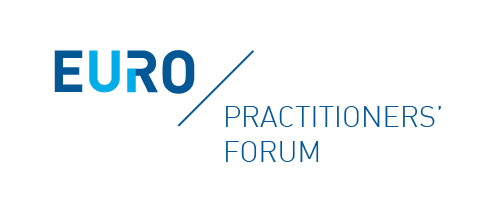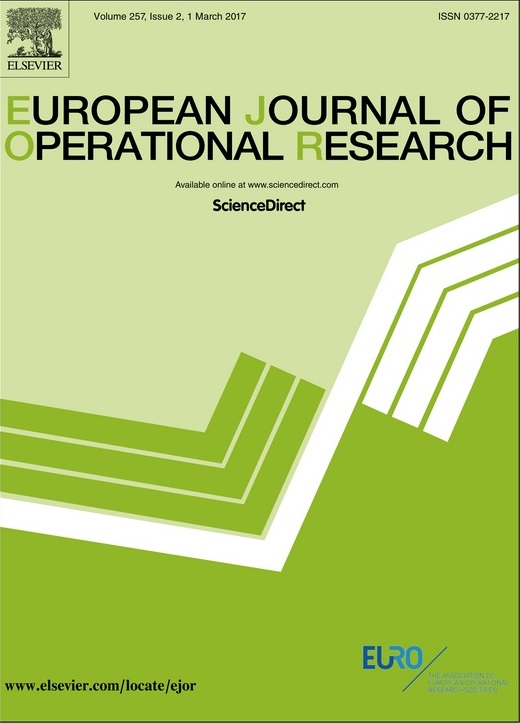
EURO Practitioners' Forum (formerly EURO Working Group on Practice of OR)
Motivation and Purpose
Practitioners can benefit enormously from networking, sharing experiences, learning from each other, and potentially collaborating with each other; and there is even more benefit to be gained from cementing links between these practitioners and EURO's academics. The EURO Forum (building on previous success as a EURO Working Group) aims to help develop such networks, and to support and assist OR practitioners, and in particular people whose primary purpose is applying OR in a business/government/charity or similar environment.
The Forum takes a broad view of OR practice, to include analytics, data science, and the full range of hard and soft approaches that have grown up over the decades since OR was first deployed to tackle complex and pressing problems.
Activities
Current activities include:
- ‘Making an Impact’ stream within EURO-k conferences;
- practitioner related workshops or training events;
- an annual virtual or physical meeting;
- a monthly webinar series, with recordings available on line.
In future, we could consider additional activities such as:
- to contribute practitioner-focused publications to relevant OR journals and special issues, and maintain a bibliography of such publications;
- to interact with EWGs e.g., propose Mini conferences with a subject focused meeting that is attractive or of particular relevance to a number of industries;
- to interact with national societies to help identify their needs in terms of linking with practitioners for employment opportunities, creating consortia for grants or responding to RfPs for consultancy services, education;
- to maintain a contact point for people looking for O.R. suppliers;
- to maintain a website for people to contribute stories, questions, answers and jobs;
- to help with the integration of academics and practitioners, and highlight good examples of academic-practitioner collaboration;
- to provide opportunities for research developments to be converted into practical commercialised applications;
- to provide online useful materials for access by practitioners;
- to generate "White Papers"; on current topics from the point of view of OR practitioners;
- to promote the benefits of OR to industry/business/government/the third sector (including not just the financial savings, but the benefits of for example greater insight or ability to consider more scenarios);
- to provide points of contact for academics looking for realistic examples, actual data etc.
History
This initiative was publicly "launched" at the 2016 EURO Conference in Poznań, and formally established as a EURO Working Group in early 2017, before converting to a Forum in late 2021. However, it has a longer history, growing out of UK efforts to engage practitioners in their national conference with a “Making an Impact” (MAI) stream. This stream is designed to enable OR professionals to have more impact on the outside world, by helping them find solutions to typical practical challenges, gain understanding of tools/techniques they haven't used before, build their networks, and learn from others in order to inspire and expand their own practice. These sessions have the objective of helping practitioners in their task of making the organisations they work for more effective; rather than the usual scientific conference objective of developing the O.R. discipline, theory or quality of research. Since 2015, MAI has been a feature of every EURO-k conference.
As part of MAI at EURO 2016, on Monday 4th September Ruth Kaufman (a practitioner, and President of the UK's OR Society) coordinated the "European O.R. Practitioner Network: Founding Meeting". 16 people took part representing 7 countries and working in a range of industries. Four groups were formed to discuss challenges they face and identified a number of common factors. The group also discussed what they would like to achieve through a formal network and these included: enabling collaboration; inspiration to help solve complex problems; examples of cooperating with academics; and maintaining the MAI momentum for future conferences.

This work is licensed under a Creative Commons Attribution-ShareAlike 3.0 International License and the GNU Free Documentation License (unversioned, with no invariant sections, front-cover texts, or back-cover texts).



